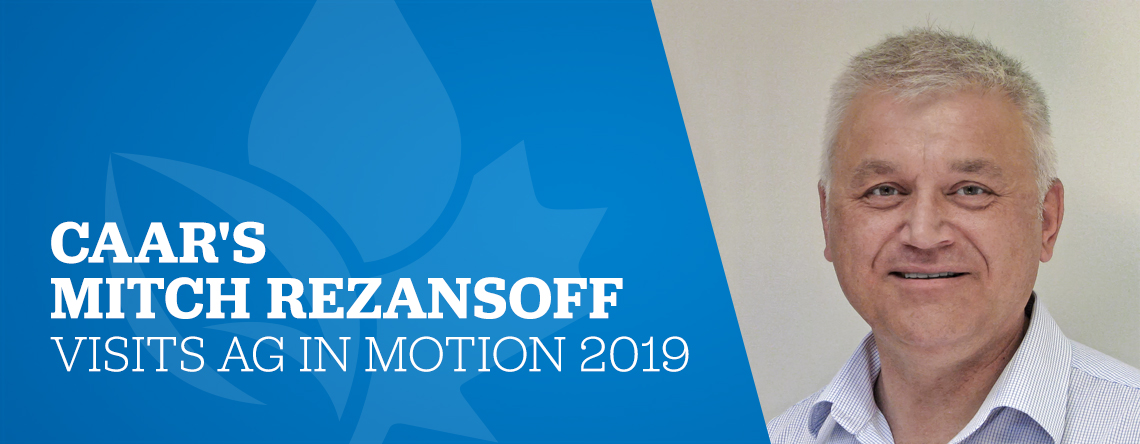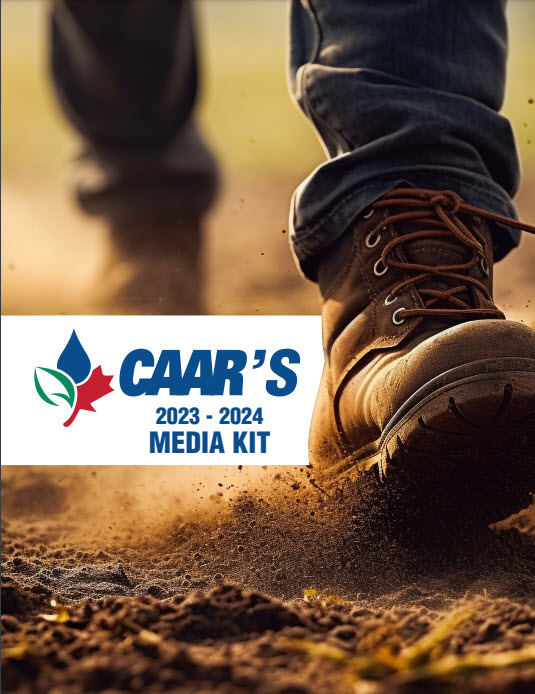From Mitch Rezansoff, Executive Director of CAAR:
At Ag in Motion, it was clear to me that suppliers of seed, fertilizer, crop protection, technologies and equipment are jockeying to position themselves as leaders and trusted advisers to farm managers and operations.
Trusted adviser status cannot be claimed – it must be earned.
To establish trusted adviser status, one must demonstrate that they can give valuable advice within and outside their specialism. This includes demonstrating knowledge of ag business and production in general, and of the farm client’s operation and areas of specialties.
Earning Your Spot
It is not easy to earn the place of a trusted farm adviser; it takes sustained effort. That means doing your homework and committing to investments of long-term learning.
It also means paying attention, making concerted efforts to build experience on clients’ farms, providing evidence-based experience and example sharing, and recording what has worked across multiple scenarios.
No one individual can provide complete trusted adviser services to farm operations, rather, farmers tend to surround themselves with multiple trusted advisers overtime. The goal is to be recognized as one of the chosen.
This leads to the question:
Who is best positioned to be a trusted adviser to farm operations and farm managers to lean on for advice?
We need to look at:
- Who has the greatest breadth of experience and the greatest knowledge development opportunities?
- Who works with the largest number of similar farm operations, environmental and geographical conditions, through hands on experiences?
The answer to both lies with agronomists.
I’m not discounting the value of input, technology and equipment suppliers. They too employ agronomists.
But, full-time, dedicated agronomists over time develop the greatest breadth of knowledge with cross-functional and multidisciplinary expertise.
Agronomists possess knowledge that includes:
Soils, nutrients, seeds, crop protection, short- and long-term husbandry, mechanical implications, timing, environmental and geographical implications, technological and science advancement reviews and recommendations, problem investigation and resolution, aligning the critical factors of science, technology and precision technology/equipment and sustainability practices.
There are approximately 10,000 Professional Agrologists and 1,700 Certified Crop Advisers in Canada.
They are self, private and public employed. Many are employed by agri-retailers.
The value of this dynamic group will not diminish with advances in ag science and precision technologies.
Agronomists are critical to supporting the adoption, mainstreaming and identifying efficiencies as farm operations progress.
Agronomists must embrace lifelong learning, must become the conduit of introducing new systems and technologies to farm operations and utilize these advancements themselves. Not only must they introduce these development to farm managers, but they must also support the transition.
As an agronomist, when farm managers and their operations request your opinion and support when considering fundamental operational changes, a first step to achieving trusted adviser status has been completed.
Agronomists that bridge the gap connecting science, technology and equipment will remain a valued partner to farm operations today and tomorrow.
– Mitch Rezansoff
Related Articles
- Retailers & Recycling Ag retailers have been at the forefront of participating in and promoting sustainability initiatives in agriculture Data provided by Cleanfarms CAAR members were early adopters of the Cleanfarms program, with ma...
- CSTA to Host AGM Online For the first time ever, the Canadian Seed Trade Association (CSTA) will be holding its Annual General Meeting online. Log in on Wednesday, July 15 from 1-3:30 p.m. to hear remarks from CSTA’s president and staff mem...
- COVID-19 Restrictions Force a Format Change for Ag in Motion Ag in Motion, Western Canada’s Outdoor Farm Expo, is moving to an online format for 2020. The new format, “Ag in Motion Discovery Plus,” will give visitors access to all the latest in farm equipment and innovations, ...
- Celebrate National Soil Conservation Week National Soil Conservation Week starts on Sunday, April 19. This event, led by the Soil Conservation Council of Canada, is the perfect opportunity for everyone in the industry to celebrate soil and reflect on one of ...
- The Fertilizers of the Future CAAR’s executive director Mitch Rezansoff recently attended three days of meetings in Ottawa on the future of fertilizer. The CFIA’s Fertilizer Workshop, Fertilizer Canada’s Fertilizer Products Forum and The Fertiliz...
 How to resolve AdBlock issue?
How to resolve AdBlock issue? 


Join the discussion...
You must be logged in as a CAAR member to comment.
Report
My comments